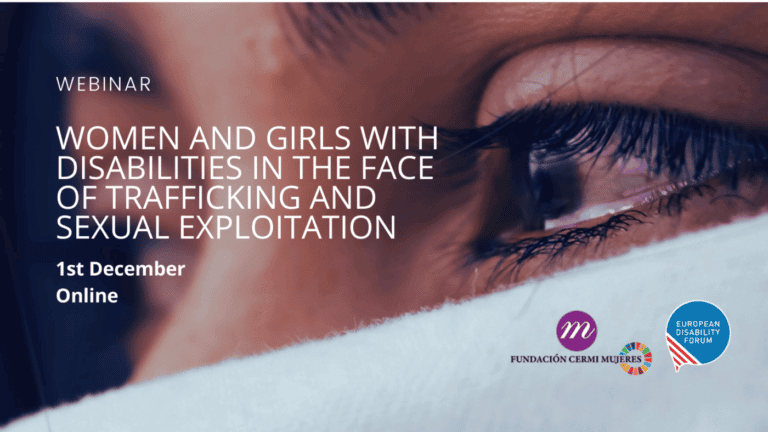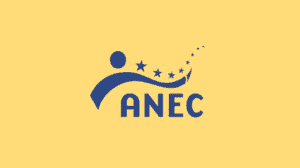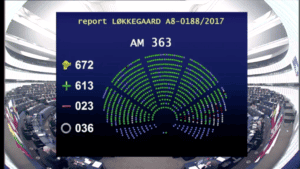On the 1st of December, the European Disability Forum (EDF) and the CERMI Women’s Foundation in Spain organised a webinar that the EUD attended. Its purpose was to inform organisations of persons with disabilities (OPDs) on the relevant instruments and policies to combat the trafficking and sexual exploitation of women and girls with disabilities. It also presented examples of best practices and the current state of play in Spain.
The keynote address, delivered by EDF Human Rights Officer Marine Uldry, was about the EDF’s work on the situation of women and girls with disabilities. She highlighted that in many cases, the research and existing policy designed to combat trafficking and sexual exploitation do not refer to persons with disabilities at all, nor do they include women or girls with disabilities, who are more at risk. To conclude, Ms Uldry summarised the four main factors leading women and girls with disabilities to be trafficked: 1) lack of awareness; 2) lack of data; 3) socio-economic disadvantage; and 4) the invisibility of women and girls with disabilities in legislation and policies on trafficking.
Siobhán Mullally, the United Nations Special Rapporteur on trafficking, talked about international legal instruments designed to protect women and girls with disabilities. She explained that the intersection of disability and human trafficking is an area that has been neglected in international law and policy. Mrs Mullally argued that Article 16, paragraph 3 of the United Nations Convention of the Rights of Persons with Disabilities (UNCRPD) refers to the state parties’ obligation to ensure that independent authorities effectively monitor facilities and programmes designed to serve persons with disabilities. This thereby creates the need for the active development of measures to prevent all forms of exploitation of persons with disabilities.
Presenting the research perspective on the best practices and the current state of play in Spain was Isabel Caballero Pérez, Coordinator at CERMI Women’s Foundation. She reported that 79% of victims trafficked for sexual purposes in 2019 were women and girls. To combat trafficking, the Spanish government released a comprehensive plan from 2015 to 2018. It did have some measures focusing on women with disabilities, but they were not in any significant policies. Moreover, Mrs Pérez said there was an ongoing debate in the country’s parliament regarding the future law on trafficking, to which organisations can contribute in 2022.
This webinar provided vital information about the sexual exploitation and trafficking of women and girls with disabilities, which is often neglected in policy, research, and practice. It is essential to raise awareness of various kinds of exploitation such as begging, forced criminality, forced marriage/labour servitude and prostitution, as they are often not well known. OPDs and National Associations of the Deaf (NADs) could advocate for policies that combat these crimes and help ensure the protection of women and girls with disabilities.













